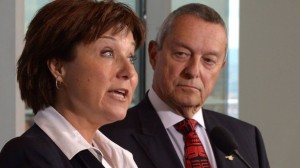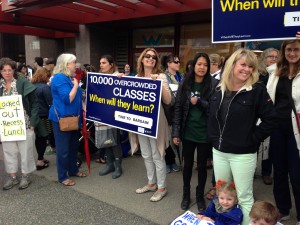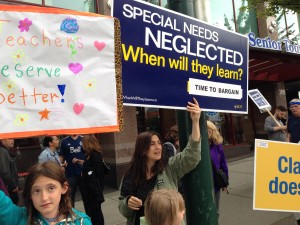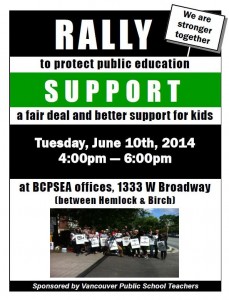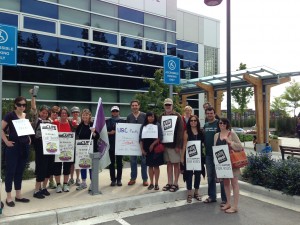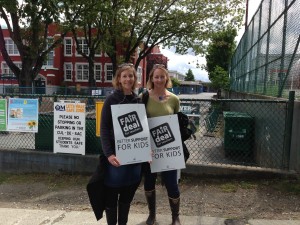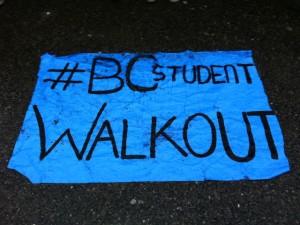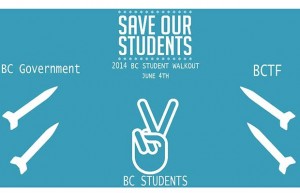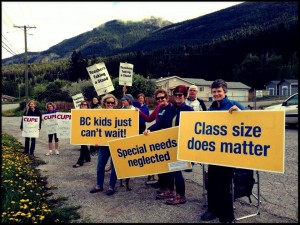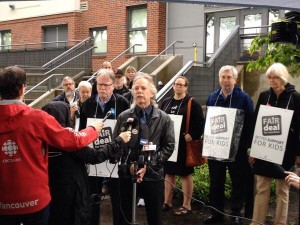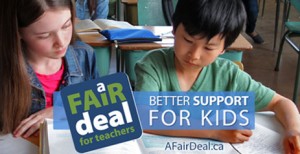Public funding for private schools is at odds with creating a more equitable, just, and democratic society.
It is a policy that almost always privileges families with more disposable income over the less wealthy and poor and often privileges religious education over secular education.
Moreover, public funding of private schools supports a two-tiered system of education that allows some schools to cherry pick who attends and undermines the concepts of the public good and community in favor of individual gain.
Public school budget cuts result in closed libraries, reduced special education services, and increased class size, while private schools are publicly subsidized to provide the advantaged with more benefits. These include such as smaller class sizes, which allow teachers to be more responsive to student needs and customize learning activities and to provide private school students with enriched curricula in art, sports, and music programs.
For the first one hundred years of its history there was no public funding of private or religious schools in British Columbia. The Social Credit government introduced public funding of private education in 1977 and only then did enrolment in private schools begin to increase, taking a larger share of the provincial education budget.
Since the BC Liberals ascended to power, British Columbians have been subjected to a steady stream of ideologically driven public policy decisions that shift responsibility for providing and financing public services from the public to the private domain. As with other public assets, their aim is to privatize the commonwealth of the province.
Public funding of private schools is a form of privatization consistent with fundamental ideological positions of the BC Liberals and the corporate media in BC, which include reducing taxes on the wealthy and corporations and cutting public spending for social services.
Privatizing public enterprises, goods, and services is usually done in the name of increased efficiency, but mainly has the effect of concentrating wealth in fewer hands (the gap between the wealthiest and the majority of BC families has grown dramatically over the past 30 plus years) and making the public pay more for its needs (see, for example, BC Ferries).
Not unlike academy schools in England or charter schools in the US, public funding of private schools in BC is privatization through the back door.
Elite private schools are subsidized by the public, while public schools are told to look to the market—recruiting tuition paying international students, setting up school district business companies, or opening their doors to corporate programs—or to parent fund raising, to solve a budget crisis imposed by government’s distorted priorities.
In a recent editorial, The Province charged critics of public funding for private schools with being “long on ideology and short on intelligence,” but it seems this paper’s own market ideology has blinded them to some key facts.
The fundamental idea of public funding for private schools is based on the false premise that private schools do a better job. In reality, public school students outperform private school students.
A recent study of first-year physics students at UBC found that those who had graduated from public schools in Metro Vancouver outperformed their private schools peers.
This finding is reiterated in a study just published by the University of Chicago Press, which concludes public schools achieve the same or better mathematics results as private schools with demographically similar students.
In 2006, the Educational Testing Service reached similar conclusions, finding that US public school students outpaced private school students in both reading and math.
Private school enrolment is soaring because it is encouraged by public policies that divert public money to support private interests and by ideologies that promote individualism and private gain over community and shared interests.
[Edited version published as op-ed column, “Private education funding is undemocratic,” in Times Colonist, June 28, 2014: http://www.timescolonist.com/opinion/op-ed/comment-private-education-funding-is-undemocratic-1.1185002]
[Shorten version published as letter, “Education: Privatization through the back door: Responsibility for public services shifting to private domain,” in Vancouver Sun, June 21, 2014:
http://www.vancouversun.com/business/Saturday+June+Education+Privatization+through+back+door/9960264/story.html]


 Follow
Follow
